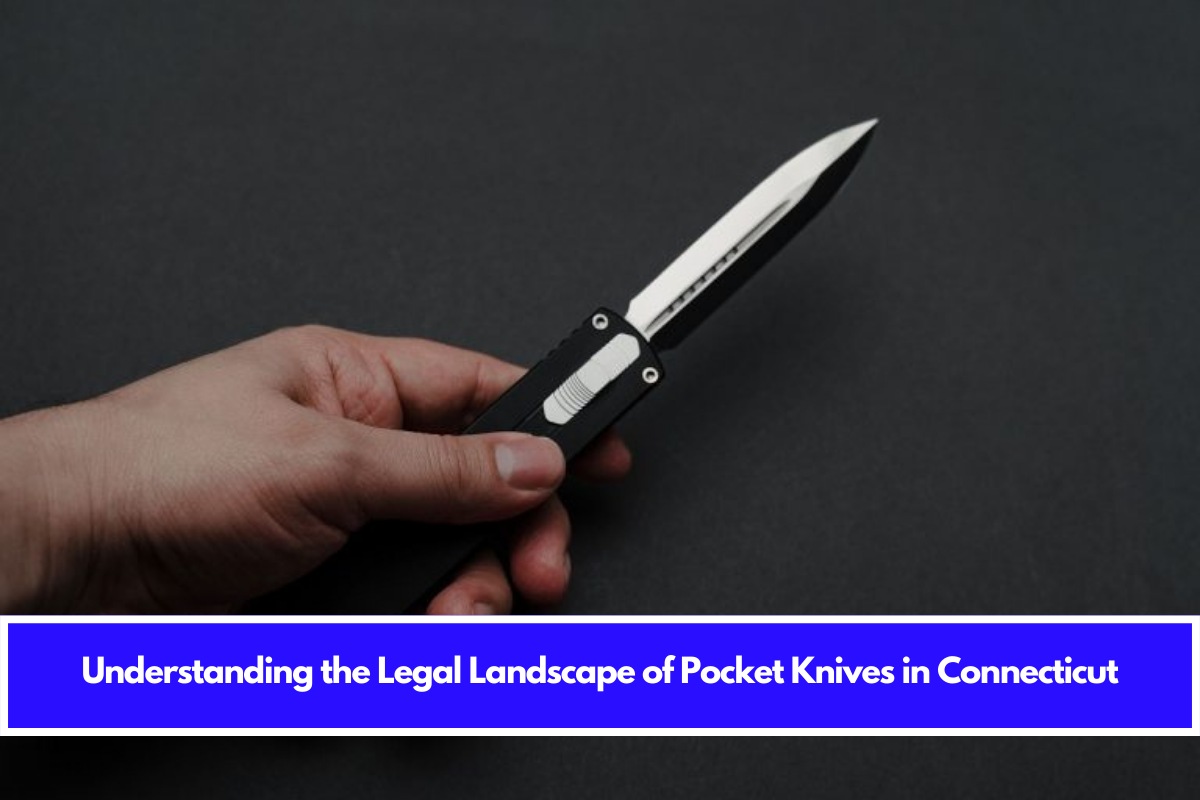Connecticut’s knife laws are detailed and nuanced, combining statewide statutes with the possibility of additional local regulations. Understanding these laws is essential for anyone who owns, carries, or intends to use pocket knives in the state.
Key Legal Statutes and Blade Length Limits
General State Law: Connecticut law does not outright ban the possession or open carry of most knives, including pocket knives, but it does impose specific restrictions on certain types and blade lengths.
Blade Length Restrictions:
- Automatic (Switchblade) Knives: Legal to possess and carry only if the blade is no longer than 1.5 inches.
- Other Knives (including most pocket knives): Legal to carry if the blade is less than 4 inches in length. Carrying any knife with a blade 4 inches or longer outside of your home or business is generally prohibited unless you fall under a statutory exception.
Carrying and Concealment
- Concealed vs. Open Carry: Connecticut law does not distinguish between concealed and open carry for legal knives. The manner of carry (open or concealed) is not an issue as long as the knife itself is legal and not carried with unlawful intent.
- Intent: Carrying a knife with the intent to harm or use it as a weapon can result in criminal charges, regardless of blade length.
Restricted Locations and Circumstances
- Schools: It is strictly illegal to possess any knife on public or private school grounds (K-12) or at school-sponsored events. This applies to all knives, regardless of size or type.
- Other Restricted Areas: Knives are also prohibited in certain government buildings, courts, police stations, and some public properties. Local ordinances may further restrict knife carry in specific municipalities.
Local Ordinances and Statewide Preemption
- No Statewide Preemption: Connecticut does not have statewide preemption for knife laws, meaning cities and towns can (and do) enact their own, sometimes stricter, regulations. Notable cities like Hartford, New Haven, and Bridgeport may have additional rules regarding blade length, types, or manner of carry.
- Travel Considerations: When traveling through Connecticut, be aware of both state and local laws to avoid inadvertent violations.
Exceptions and Special Permits
- Work, Hunting, and Fishing: There are exceptions for carrying certain knives for lawful work, hunting, or fishing activities, provided you have the appropriate license or are engaged in the activity.
- Law Enforcement and Military: Specific exceptions exist for law enforcement officers and military personnel acting in the course of their duties.
- Permits: In rare cases, individuals may obtain a permit to carry otherwise restricted knives, but this process is tightly regulated and generally not applicable to standard pocket knife carry.
Penalties for Violations
- Class D Felony: Violating Connecticut’s knife laws (e.g., carrying an illegal knife or possessing a knife in a prohibited location) can result in a Class D felony, punishable by 1 to 5 years in prison and/or a fine up to $5,000.
- Other Charges: Additional charges may apply if the knife is used or intended to be used as a weapon, or if the individual has a prior criminal record.
Sources:
- https://www.akti.org/state-knife-laws/connecticut/
- https://ravencresttactical.com/connecticut-knife-laws/
- https://edc.ninja/connecticut-knife-laws/
- https://nobliecustomknives.com/us-knife-laws/connecticut-knife-laws/
- https://www.carved.com/blogs/life-at-carved/pocket-knife-rules-laws-by-state
- https://portal.ct.gov/BFPE/Laws/Laws/Law-3











Leave a Reply